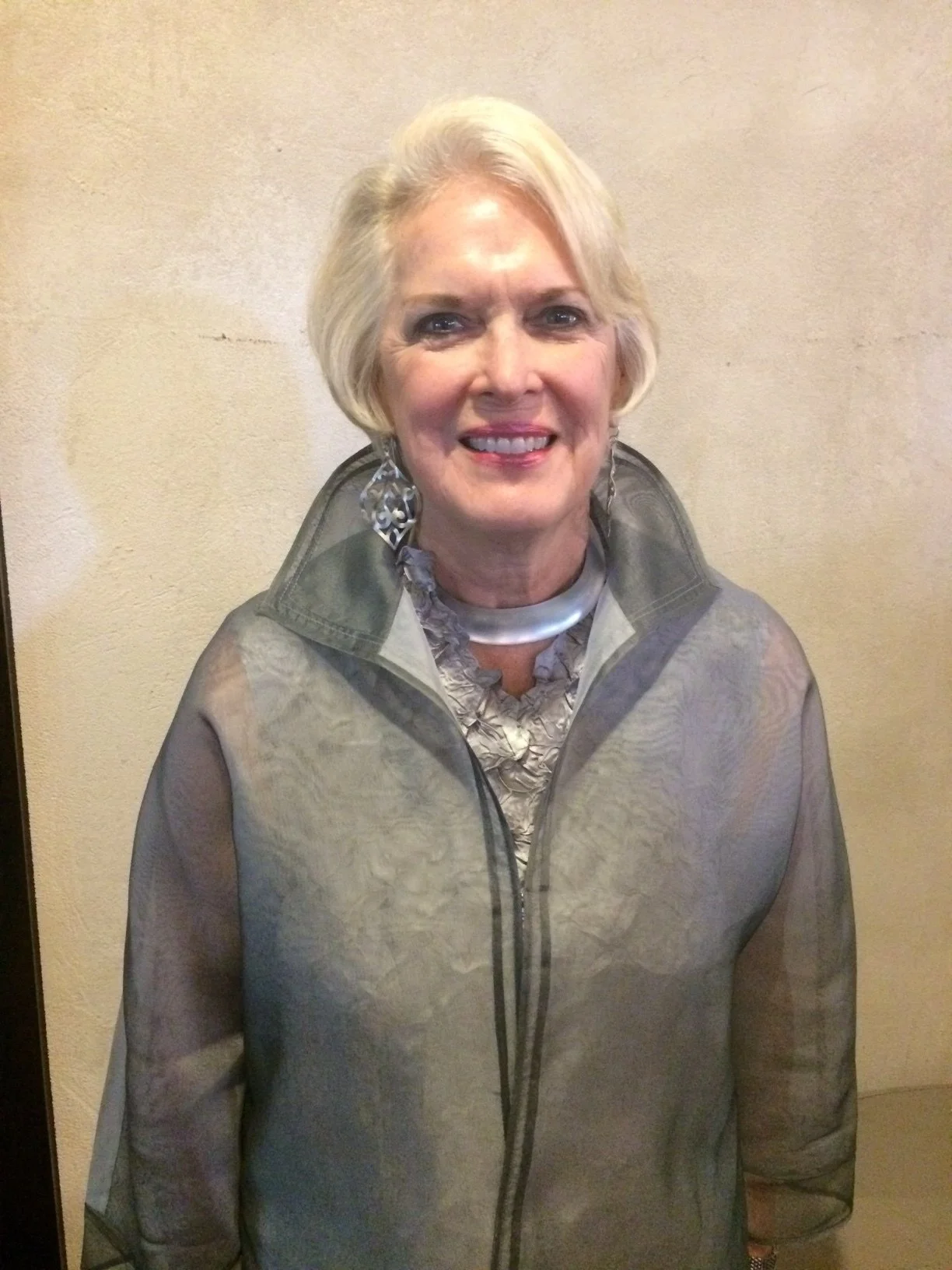A Thoughtful And Dynamic Retirement: Talking with Kathryn Johnson
By Karen and Erica
Kathryn Johnson has always been a dynamo. Originally from Indiana, she spend seven years working and in school in Boston before she moved to San Francisco--forever. Kathryn retired on January 1, 2002, but she did not slow down. Her energetic--and analytical---approach to retirement is an interesting part of her story.
Kathryn, your career history is instructive. Please tell us about it.
In college I studied political science. I wanted to work on global issues. After I graduated, my first job was in management at a major teaching hospital in Boston where I had several strong female role models and mentors. Seven years later, after graduate school in Boston, I got a job offer from a health care association and came West to San Francisco. I never left. The West was the perfect spot to explore new frontiers, and become part of a more open and innovative region of the US.
What was your career trajectory?
The job that brought me to the West was focused on helping the senior leaders in Western health care organizations be more effective leaders. We wanted to innovate information sharing among hospitals to help all of them achieve organizational excellence in the delivery of health care. Several years later we reorganized and became a national and international organization called the Healthcare Forum.
Eight months after I started, the CEO left and I was appointed as the new CEO. I was 29. Being CEO was a huge stretch for me, a real growth experience. I loved it, and I stayed as CEO for 25 years, until I retired. We grew from a western based organization into a national one, and developed a global presence. Later, my organization merged with another national health association to become Health Forum, a strategic business enterprise of the American Hospital Association.
Did you enjoy working?
I surely did. I was fortunate to have a rich, varied and fast paced career in health care, an industry encountering great change during the time I worked within it. Travel was a big part of my job, as I visited hospitals all over the country, and ultimately all over the world. I had many challenges and rewards as I studied health care systems around the globe and made lasting global friendships. My career experiences inspired me to work globally after I retired.
What are you doing now?
I serve on five Boards and a number of Advisory Boards, which keeps me traveling, and am most engaged in global health and global women’s economic empowerment. Recently, I co-chaired a program with five global women’s organizations to achieve “collective impact” by working collaboratively on women’s economic and social impact. We were recently funded by the Gates Foundation to begin a pilot project in India.
And retirement is not all work. My husband and I are avid travelers, and to date, we have traveled to 198 countries, with a special focus on festivals. We also love theatre and the arts, and gardening.
While you worked did you give any thought to retirement planning?
Yes, my husband and I had planned for our retirement from the early years of our marriage. I always loved strategic planning, and after I retired I did a five year strategic plan to focus on new personal and professional goals. This seemed the perfect time to expand my worldview and take on areas where I have an interest in but little experience-e.g., studying and acquiring new skills. It seemed to me the risks had never been lower.
Using an outline I called "Chapter Three" I developed a three page plan for the first three to five years of our post retirement life. We launched the plan, and we build in regular reviews/updates to clarify our goals and our progress. Here it is:
1. Health and Fitness. Get fit and build a new routine.
2. Build A Financial Game Plan. Reassess financial security and outline what we need to ensure financial stability even if something unexpected happens.
3. Mental/Spiritual Health/Time for Reflection. Use retirement to renew the spirit and become more mindful.
4. Identify New Creative Outlets/Outside the Box Thinking/Take New Risks. Follow new passions-especially outside current areas of expertise. Ask what have I always wanted to explore/pursue but haven’t to date.
5. Determine How to Best Serve. Create a volunteer profile criteria for the best use of talents, including clear requirements for any paid, volunteer or pro bono work.
6. Focus on Family, Friends, Community. A new set of priorities
7. Move Outside Current Areas of Interest. Explore new intellectual and dilettante pursuits.
8. Laugh, Love, Linger. More.
9. Keep a Bucket List. Every 6 months explore and recalibrate and “follow your bliss.” Joseph Campbell
We guess you are enjoying retirement, including a lot of travel!
More that I imagined. The ability to plan and use one’s time exactly as one wants is an enormous luxury and one I am most grateful for everyday. In June we are heading to see the Polar Bears in Svalbard, Norway, along with Greenland and Iceland with National Geographic. In September we head to India to the Pushkar Camel Fair and to see the tigers. Both trips have been on our bucket list for sometime. Couldn’t be happier.

